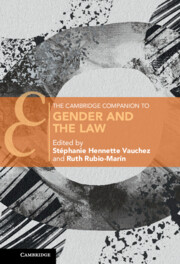Book contents
8 - The National Subject
from Part III - Communities
Published online by Cambridge University Press: 19 January 2023
Summary
This chapter affirms the feminist impetus of this collection by reflecting on power relations in society and their impact on law and law’s regulation. An acute site for this inquiry is in the state itself, and the state’s determination of its own membership. It is the thesis of this chapter that the national subject, the legal citizen,1 is a space in which gender, sexuality and race keenly interact with the everyday lives of individuals. An appreciation of this point is often overlooked. While the language of citizenship is often gender neutral, it often ‘perpetuat[es] the invisibility of women’ as citizens.2 Margaret Thornton examines the civil status of women as citizens in the early years of the twentieth century to ‘illustrate the peripheral civil status of women as citizens’ and, therefore, questions the full membership consequences of citizenship.3
- Type
- Chapter
- Information
- The Cambridge Companion to Gender and the Law , pp. 271 - 301Publisher: Cambridge University PressPrint publication year: 2023

